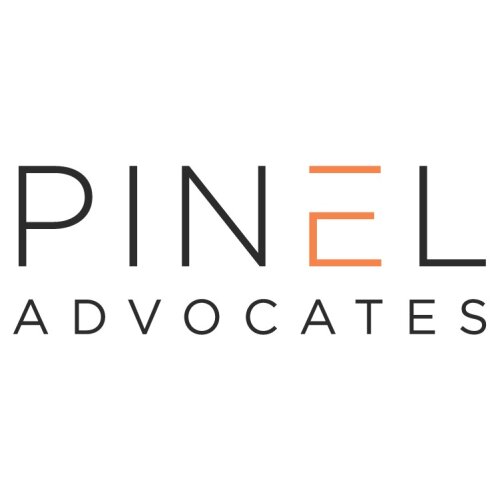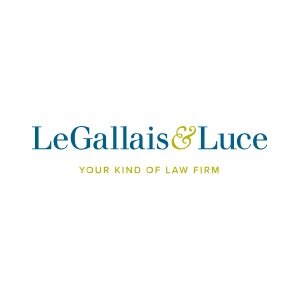Best Nonprofit & Charitable Organizations Lawyers in Jersey
Share your needs with us, get contacted by law firms.
Free. Takes 2 min.
Or refine your search by selecting a city:
List of the best lawyers in Jersey
About Nonprofit & Charitable Organizations Law in Jersey
Nonprofit and charitable organizations play a critical role in the community of Jersey by addressing social needs, promoting welfare, and supporting various public interests. In Jersey, these organizations must comply with specific legal and regulatory frameworks set by the government to ensure proper management, transparency, and accountability. The Jersey Financial Services Commission (JFSC) oversees the registration and regulation of charitable organizations under legislation aimed at facilitating their establishment and operation while protecting the public interest. This legal framework helps to establish trust in the nonprofit sector by ensuring that organizations operate with integrity and efficiency.
Why You May Need a Lawyer
Navigating the legal landscape of nonprofit and charitable organizations in Jersey can be complex, necessitating the involvement of skilled legal professionals. Here are common scenarios where legal advice might be crucial:
- Formation and Registration: Setting up a nonprofit organization involves legal procedures such as registration and ensuring compliance with regulatory requirements.
- Compliance and Governance: Organizations must adhere to regulations regarding operations, reporting, and governance to maintain their charitable status.
- Contractual Agreements: Drafting, reviewing, and negotiating contracts with donors, suppliers, and service providers can require legal expertise.
- Tax Exemptions: Understanding and obtaining applicable tax benefits for charitable activities may require navigating complex tax laws.
- Fundraising Regulations: Legal advice can ensure that fundraising efforts comply with applicable laws and ethical standards.
- Dispute Resolution: Addressing conflicts within the organization or with external parties might need legal intervention.
Local Laws Overview
Key aspects of local laws relevant to nonprofit and charitable organizations in Jersey include:
- The Charities Law (Jersey) 2014: This law provides a framework for the registration and regulation of charities, aiming to increase transparency and public confidence in the sector.
- Registration Requirements: Organizations must register with the JFSC to be recognized as a charity and must regularly report on their activities and financials.
- Governing Documents: Charities need a constitution or a set of rules outlining their operation, powers, and the conduct of their governing body.
- Ethical Fundraising: Organizations must adhere to regulations ensuring ethical fundraising practices that protect donors and beneficiaries.
- Data Protection and Privacy: Compliance with data protection laws is essential for organizations holding personal data of donors, beneficiaries, or volunteers.
Frequently Asked Questions
What defines a nonprofit organization in Jersey?
A nonprofit organization in Jersey is defined as an entity that is not intended to make a profit for personal gain but rather serves a public or community benefit.
How do I register a charity in Jersey?
Registering a charity in Jersey requires completing an application with the JFSC, providing necessary documentation, and demonstrating the charitable purpose of the organization.
Are there different types of nonprofit entities in Jersey?
Yes, nonprofits in Jersey can take various forms, including charitable trusts, associations, or limited companies with charitable objectives.
What tax benefits are available to charities in Jersey?
Registered charities in Jersey can enjoy certain tax benefits, such as exemptions from income tax on qualifying charitable income and relief on Goods and Services Tax (GST).
What are the governance requirements for a charity?
Charities must have a governing document outlining management procedures, and they are required to act in accordance with their mission, ensuring transparent and accountable governance.
How can a nonprofit organization raise funds legally in Jersey?
Nonprofits must comply with Jersey's fundraising regulations, which include obtaining necessary permits, ensuring public transparency, and adhering to ethical standards.
What is the role of the Jersey Charity Commissioner?
The Jersey Charity Commissioner is responsible for registering charities, maintaining the public register, and ensuring compliance with the Charities Law.
Can a nonprofit engage in commercial activities?
While nonprofits can engage in commercial activities, these activities must align with their charitable mission, and profits should be reinvested into the organization's objectives.
What happens if a charity breaches the Charities Law?
Breaching the Charities Law can result in penalties, which may include fines, and the revocation of charitable status, impacting the organization's ability to operate.
What are the reporting obligations for charities in Jersey?
Charities are required to submit annual financial statements and activity reports to the JFSC to demonstrate accountability and adherence to their stated purposes.
Additional Resources
For further guidance and resources, the following entities can be helpful:
- Jersey Financial Services Commission (JFSC): The primary regulatory body for charitable organizations in Jersey.
- Jersey Charity Commissioner: Offers guidance and oversees charity registration and compliance.
- Local Law Firms: Many law firms in Jersey specialize in nonprofit law and can provide tailored advice and assistance.
- Community Charity Support Services: Support and resources for local charities, often offering workshops and informational sessions.
Next Steps
If you require legal assistance with nonprofit or charitable organization matters in Jersey, consider taking the following steps:
- Identify Your Needs: Clearly define the legal issues or questions your organization faces.
- Seek Professional Advice: Engage a lawyer or legal firm specializing in nonprofit law for professional advice and representation.
- Gather Relevant Documents: Collect all necessary organizational documents, such as constitutions, financial records, and previous legal correspondence.
- Consult with the JFSC: Reach out to the Jersey Financial Services Commission for guidance on regulatory compliance and registration procedures.
- Stay Informed: Keep up to date with changes in local laws and regulations affecting nonprofit and charitable organizations.
Lawzana helps you find the best lawyers and law firms in Jersey through a curated and pre-screened list of qualified legal professionals. Our platform offers rankings and detailed profiles of attorneys and law firms, allowing you to compare based on practice areas, including Nonprofit & Charitable Organizations, experience, and client feedback.
Each profile includes a description of the firm's areas of practice, client reviews, team members and partners, year of establishment, spoken languages, office locations, contact information, social media presence, and any published articles or resources. Most firms on our platform speak English and are experienced in both local and international legal matters.
Get a quote from top-rated law firms in Jersey — quickly, securely, and without unnecessary hassle.
Disclaimer:
The information provided on this page is for general informational purposes only and does not constitute legal advice. While we strive to ensure the accuracy and relevance of the content, legal information may change over time, and interpretations of the law can vary. You should always consult with a qualified legal professional for advice specific to your situation.
We disclaim all liability for actions taken or not taken based on the content of this page. If you believe any information is incorrect or outdated, please contact us, and we will review and update it where appropriate.
Browse nonprofit & charitable organizations law firms by city in Jersey
Refine your search by selecting a city.











